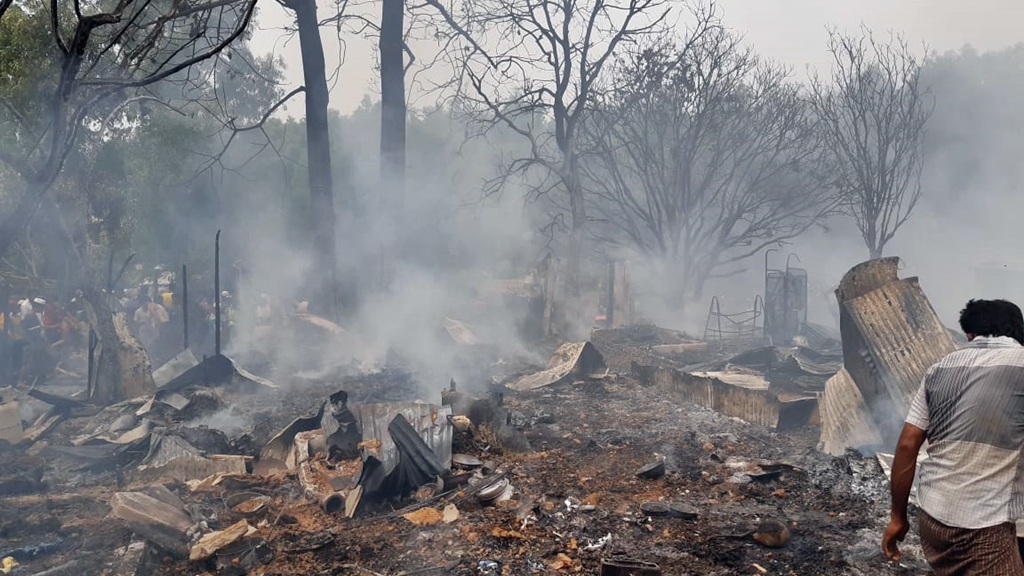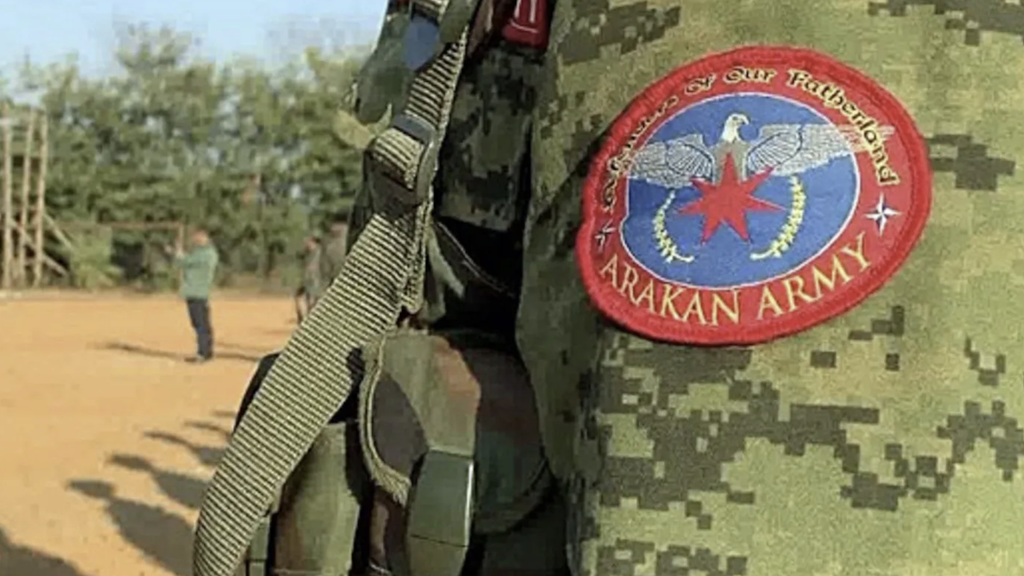
Fire Destroys 312 Rohingya Refugee Shelters, ‘Partially’ damages another 362 in ‘World’s largest refugee camps’
- 12/05/2020
- 1
By Mohammed Rafique, The Rohingya Post
On May 12, a highly devastating fire spread in Kutupalong Refugee Camp, in Cox’s Bazar, Bangladesh where hundreds of thousands Rohingya refugees are taking refuge.
At 8:20 am local time, the fire broke out from Abu Tayoub’s (block-in-charge) block and spread to the neighbouring three blocks led by Holil, Jamal and Tayoub Mustafa in 1E-Camp.
The fire reportedly ignited from a gas cylinder from one of the shelters at Abu Tayoub’s block. Shelters in three of them were completely consumed in the blaze.
According to UNHCR Bangladesh, “a total of 312 shelters were destroyed, with 362 more partially damaged, as well as small shops and businesses” in the fire.
The fire was subsequently controlled by Bangladesh Fire Service.
More than 670 Rohingya refugee families who are affected by the fire, are being provided with emergency aid and shelters coordinated by UNHCR, BRAC, WFP, ACTED, BDRCS and WASH.
Hundreds of children are devastated and traumatised with the outbreak of fire.
Rohingya refugee children crying after the onset of fire in Kutupalong Refugee camp
There are also around 10 refugees who sustained non-life-threatening burn injuries. They are being treated at local camp clinics.
Mohammed Toha, a Rohingya refugee whose shelter and shop were completely destroyed in the fire told The Rohingya Post, “We are devastated with the fire in this critical time. First, I lost my home and properties in Burma (Myanmar) during the genocide. Now I lost my shop and shelter in this fire.”
“We don’t know how we will cope. We fled Burma leaving behind everything we possessed. We tried to build a shelter and a small shop to sustain our family. They are also gone now,” said Noor Nahar, another Rohingya woman who is also affected in the latest fire.
Over a million of Rohingya refugees are under the Covid-19 pandemic lockdown in Bangladesh, and face a prospect of challenging crisis if the pandemic reaches to the camps where there are no adequate infrastructures and healthcare services available to manage the vulnerable groups of refugees.











One thought on “Fire Destroys 312 Rohingya Refugee Shelters, ‘Partially’ damages another 362 in ‘World’s largest refugee camps’”